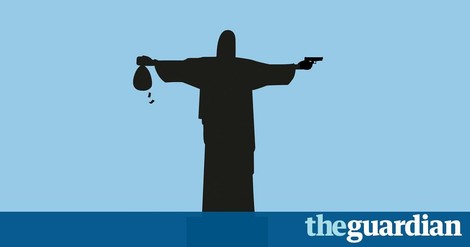Your podcast discovery platform
Curious minds select the most fascinating podcasts from around the world. Discover hand-piqd audio recommendations on your favorite topics.

piqer for: Globalization and politics Global finds
Luis BARRUETO is a journalist from Guatemala. Studied business and finance journalism at Aarhus University in Denmark and City University London.
Operation Car Wash — Where Will The Largest Corruption Scandal In History Lead Brazil and LatAm?
Brazil is the epicenter of one of the biggest corruption schemes the world has ever seen. Launched in March 2014, Operation Lava Jato (Car Wash) originally targeted black market money dealers (doleiros), who laundered the profits of crime using businesses like petrol stations and car washing companies — hence the name. But the probe quickly expanded to uncover a vast web of corruption involving high-ranking politicians and corporate executives. The Guardian's Jonathan Watts longread offers context and delves deep into the investigation's intricacies.
From Lava Jato to Odebrecht
The key thing to understanding Lava Jato's expansion is that dozens of the key actors involved have testified in exchange for leniency, and have offered crucial information to expand the focus of the investigation. This is how it first centered on state-owned oil giant Petrobras, then on one of the world's largest meat-packing firms, JBS. More recently, the probe has centered on construction giant Odebrecht.
Indeed, the firm holds the key to understand why the graft network extends throughout Latin America: By their own admision, Odebrecht doled out $788 million in bribes in 12 countries to secure more than 100 contracts and generate $3.3 billion in profits. And it is perhaps "the farthest-reaching, most efficient corruption machine in modern business" — I recommend you pair Watt's with Bloomberg's feature on Odebrecht's large-scale bribery operation.
Latin America's Conundrum
By jailing dozens of corrupt officials and executives, and opening prosecution lines on Congressmen and Presidents throughout Latin America, Lava Jato has sent shockwaves throughout the continent. The big question, now, is what will its long-term effect will be. As Watts says, it largely depends not on who falls, but on who follows. We might need to wait until the storm fades.
